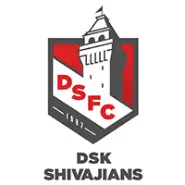The MBA (Sports Management) is a unique combination of business skills and sports. It will invariably seek to engender a well-rounded set of business skills laced with the kind of specialist knowledge that will prepare one for sports management jobs. Hard skills will encompass Financial, Analytics, Technology, Marketing and Operation skills while the soft skills will develop students interpersonal, innovation and leadership capabilities.
The MBA (Sports Management) will not only focus on theories and ideas but will concentrate on the actual applications.

Event Management In Sports
This course will provide students with an insight into the strategic management of sports events. Concept to implementation for an event; the event planning process, the stakeholder significance, communication & co-ordination as also the ... importance of ownership in event management are significant learning areas that the course emphasizes upon.From scoping and sizing of events - all types of events - the course endeavors to provide a comprehensive view in managing, coordinating and conducting events. The objective of the course is to train students in implementing strategies for success in sports events and to provide them a solid foundation in making a fulfilling career in event management. Hands-on training along with a case study learning approach for real world insight are value added enablers that embellish the course learning and outcomes.

Technology In Sports
This course will provide students the insight on technology mainstreamed in sport. The understanding of the nuances of technology and its usage in sport, for decision making, engagement and entertainment being key attributes...of the course.Students opting for the course will get to look at developments in the world of sport and explore the way in which technology has enhanced the sports ecosystem, including the players' and the supporters' experience. The course emphasizes the technology value adds of electronic decision-making, advances that have improved equipment, sportswear, athletes training and performance. As a significant attribute, the syllabus also includes hands-on training in the use of Catapult devices & software and the students will be awarded a Catapult certificate after completion of the course. Our panel of eminent faculty will teach the course using various pedagogical methods.

Sports Marketing
The course is a good combination of the value of marketing & spirit of sport. It will provide an insight into learning the tactical approach that will help combine the key attributes from the field of marketing and apply it in the field of sport.... The learning content of the course includes carefully crafted lesson plans to also cover allied fields of advertising and public relations, along with marketing - to help students learn and articulate value propositions. A career in sports marketing promises to be a journey filled with exciting opportunities & purposeful progression and this course endeavors to provide the knowledge platform to help students understand, build upon and apply - the learning.


Dr. Nayana Nimkar -Director, SSSS
Greetings!
The Symbiosis International Deemed University is known for its excellence in the discipline of Management, and has launched the much needed 2 years fulltime MBA (Sports Management) program. Our curriculum seeks to transform, prepare and empower our students for the sports industry. The four corners for our future development is developing a world class sports educational hub and teaching ecosystem, leveraging technology, creating a global perspective and infusing an entrepreneurial mindset amongst our students.
We are one of the premier institutes in the country offering this niche course. Since the inception of the program in 2016, the institute has kept pace with the changing environment in the business of sports. The School updates the students with the latest trends and technology used in Sports.


































